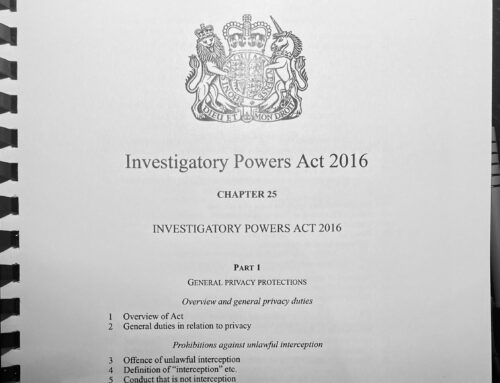This is not a blog post as such, but a compilation. I thought it might be useful to link to what I have had to say in the past several years on counter-terrorism, surveillance and countering extremism.
Counter-Terrorism
In this field, my successor Max Hill QC now holds the reins as Independent Reviewer of Terrorism Legislation (@terrorwatchdog).
His first reports were published in early 2018: those I prepared between 2011 and 2016 remain available on the archived version of the Independent Reviewer’s website. My annual reports on the operation of the Terrorism Acts were normally published by June or July of the following calendar year, though additional commitments in my last two years caused this timescale to slip. The report for 2015, issued in December 2016, contains my final thoughts on the Terrorism Acts. Its recommendations are at chapter 10.
When that report was written, there had been only three deaths from terrorist attacks in the UK (Mohammed Saleem, Lee Rigby and Jo Cox MP) since the 7/7 London attacks in 2005. The five completed attacks between March and September 2017 have introduced a new perspective. Nonetheless, the December 2016 report describes the threat (chapter 2) and the counter-terrorism machine (chapter 3), reviews the main areas of counter-terrorism law and discusses a number of things that might need to be tightened up, including ships’ manifests (7.41-7.48), pre-charge detention limits (8.7-8.12) and the treatment of “hate preachers” (9.43-9.51).
The Home Secretary’s response to that report was laid before Parliament in July 2017. Amber Rudd noted in that response that:
Out of a total of 47 recommendations you have made on the Terrorism Acts during your six years as Independent Reviewer, there are just six which the Government has rejected and which you now maintain, and a further four which have not been rejected but which have not yet been implemented.
It remains to be seen whether the new Counter-Terrorism and Border Security Bill, expected in mid-2018, will implement some of my outstanding recommendations.
The debate on control orders and their successor, TPIMs, shows signs of reviving. In March 2012 I wrote a final report on the control order scheme. Annual reports on TPIMs followed, culminating in a March 2015 analysis of “TPIMs Mk II“, which had been refashioned (notably, by restoring the power of “relocation”) in accordance with my 10 recommendations of the previous year:
[TPIMs Mk II] should be fairer and more serviceable than either the control order regime in force from 2005-2011, or TPIMs Mk I. That proposition will be tested in the years ahead. In any event, I hope nobody will lose sight of the fact that these exceptionally intrusive measures, though a powerful weapon against the undoubted threat of terrorism, are also a last resort.
The previous obligation to report annually on the operation of these measures has now lapsed, but my successor will report on them again in due course.
I wrote to The Times on the subject on 6 June 2017, underlining the value of TPIMs but also their unsuitability as an alternative to mass internment. Statistics on the use of TPIMs are published (in accordance with one of my early recommendations) every three months.
Other reports written over the years include my four reports into the operation of UK asset-freezing law, a 2016 report on the removal of citizenship, and a “snapshot report” on arrests made during the Pope’s visit to the UK in 2010.
My final report, Deportation with Assurances, was presented to the Government in final form at the start of February 2017, and published on 20 July 2017, after I had left post.
I participated in a University of Tilburg Nomposphone podcast in June 2017. In early 2018, I reflected in a Lawfare podcast (US) and an Intrepid podcast (Canada) on my experiences as Independent Reviewer.
Investigatory Powers
Investigatory powers form no part of the statutory duties of the Independent Reviewer. But I was twice asked during my second three-year term to produce major reports on (particularly) electronic surveillance.
The first, A Question of Trust, was published in June 2015 after ten months’ work by myself and a small part-time team. I described the existing law as “incomprehensible save to a tiny band of initiates”, and advised that
A comprehensive and comprehensible new law should be drafted from scratch, replacing the multitude of current powers and providing for clear limits and safeguards on any intrusive power that it may be necessary for public authorities to use.
My 125 specific recommendations, one of them communicated privately to the Prime Minister and the others published in the report, became a blueprint for the Investigatory Powers Act (IPA) 2016.
The second, my Bulk Powers Review report of August 2016, examined, with expert help, the operational case for the powers of MI5, MI6 and GCHQ to collect and retain data in bulk (“mass surveillance”, in the common but misleading parlance used by some). Citing 60 verified case studies, it concluded:
As the case studies show, the bulk powers are used across the range of Agency activity, from cyber-defence, counter-espionage and counter-terrorism to child sexual abuse and organised crime.
The bulk powers play an important part in identifying, understanding and averting threats in Great Britain, Northern Ireland and further afield. Where alternative methods exist, they are often less effective, more dangerous, more resource-intensive, more intrusive or slower.
The report’s single recommendation, that a Technical Advisory Panel of independent academics and industry experts be appointed to advise on the impact of changing technology, and on how MI5, MI6 and GCHQ could reduce the privacy footprint of their activities, was accepted and built into the IPA 2016.
My big-picture reaction to the IPA 2016 is here, and my instant casenote on the December 2016 decision of the CJEU in Watson/Tele2 (of which I was critical) is here.
In 2018, a blog post written for the US Lawfare blog gave further detail on the modern landscape of intelligence oversight in the UK.
Counter-Extremism
The operation of the Prevent strategy, and of the Government’s counter-extremism strategy, are again outside the responsibilities of the Independent Reviewer. But over the last 18 months that I was in post, it was the principal subject on which Muslims, MPs and journalists wanted to engage with me. So though I was not fully entrusted with the Government’s thinking on the subject, I thought it necessary to learn something about it.
After seeing an early draft of the Counter-Extremism Bill (promised in the Queen’s Speech in May 2015 and again in 2016 but never published), I wrote a chapter on countering extremism in one of my annual reports (September 2015, chapter 9), raising 15 specific questions over the proposals and warning:
“If it becomes a function of the state to identify which individuals are engaged in, or exposed to, a broad range of ‘extremist activity’, it will become legitimate for the state to scrutinise (and the citizen to inform upon) the exercise of core democratic freedoms by large numbers of law-abiding people.”
The proposals were subsequently dropped, and replaced by as yet unexplained plans for a Counter-Extremism Commission. Just before leaving post, in February 2017, I wrote an opinion piece for the Evening Standard on the subject of Prevent.
After leaving post I was commissioned by the BBC to present a radio documentary on Prevent. The programme, “Understanding Prevent”, focusses on Prevent in schools and features interviews with everyone from CAGE to the Security Minister. It was broadcast on Radio 4 on 25 July, and remains available (38 min) on iPlayer and as a podcast.
Here’s a flavour, from the conclusion of the programme:
The Government was surely right to apply Prevent to all forms of terrorism, not just the Islamist variety. But by extending it into vague concepts of British values, and non-violent extremism, it has chosen a difficult road.
Perhaps Prevent is being asked to do too much. There are plenty of reasons for Government to help promote tolerance, encourage critical thinking and open closed minds. But try to do those things through a vehicle designed for counter-terrorism, and you have to work a lot harder to win people’s trust.
Brexit
Some pieces on Brexit and Security are here, and some thoughts on Brexit and the Irish border are here.
General
During and after my time as Independent Reviewer I wrote a number of articles, including about my work and about terrorism, and gave evidence to numerous parliamentary committees. Much of this material is preserved on the archived version of the Independent Reviewer’s website.
Various valedictory interviews and podcasts that I gave in late 2016 and early 2017 may be found here.
Human Rights
At the root of many of these debates is human rights, a subject on which unrivalled quantities of nonsense are spoken.
This election-time post from 2017 presents a pragmatic argument for human rights in the security field, concluding:
Human rights are not the preserve of the faint-hearted. Rather, they legitimise and strengthen both the fight against terrorism and the defence of democracy.
It links to this article in Prospect, based on an address given to the Parliamentary Assembly of the Council of Europe in Strasbourg, which discusses the role of human rights in helping us decide what must be tolerated – and what must not.






